Search Results
Showing results 1 to 20 of 110
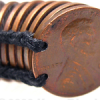
Penny Rubbing
Source Institutions
In this art-related activity, learners make a coin rubbing—a process similar to what archeologists may do with ancient artifacts. This activity can be used in connection with a history or art lesson.
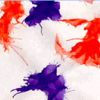
Painting a Picture with Air
Source Institutions
Create a painting by blowing air out of a straw. Push liquid acrylic paint around on some watercolor paper by aiming short bursts of air onto the paint puddle.
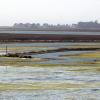
Wetland Preservation Art
Source Institutions
In this hands-on art and science activity (page 4 of the pdf), learners brainstorm and discuss how humans use wetlands, then express their understanding of the subject in artwork.
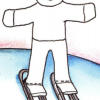
Magnets on the Move
Source Institutions
In this activity, learners investigate the behavior of magnets. Learners create a "wonder wand" with a magnet so they can move a skater around.

Super Shrinkers
Source Institutions
In this activity on page 14 of the PDF (Rethinking the 3 R’s: It’s Easy to be Green), learners turn plain pieces of recycled plastic into shrunken works of art.
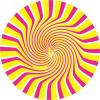
Spinning Blackboard
Source Institutions
Create beautiful spirals by drawing a straight line. This sounds crazy, but you can with a turntable (a record player or lazy susan), paper, and pen.
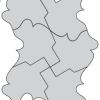
Exploring Tessellations (Grades 6-8)
Source Institutions
In this activity, learners design unique tiles and make repeating patterns to create tessellations. This activity combines the creativity of an art project with the challenge of solving a puzzle.
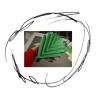
Paper Folding: Unfurling Geometric Paper Shapes
Source Institutions
Use geometry, a ruler, and a steady hand to create these amazing unfurling paper folds!
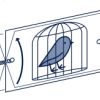
Motion Picture
Source Institutions
During this hands-on activity, learners are briefly exposed to moviemaking and animation, when they create their own thaumatropes.
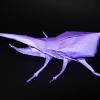
My Insect
Source Institutions
In this activity, learners use information gathered from a variety of sources to design and make their own insect.
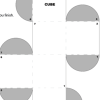
Fold a Crystal
Source Institutions
Rocks are made of minerals, and minerals often have crystal shapes. In this fun activity about geometry in nature, learners create their own crystal shapes out of paper.
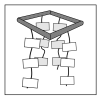
Food Chains and Webs
Source Institutions
In this activity, learners investigate feeding relationships. Learners complete a food web and then make a mobile to represent a food chain.
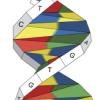
Origami DNA
Source Institutions
In this activity, learners create an origami model of DNA, demonstrating its double helix structure.
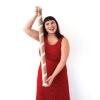
Make Your Own Rainstick
Source Institutions
In this activity, leaners build their very own rainsticks, an instrument filled with pebbles and seeds that create sounds like falling rain. Save costs by using material found around the home.

Disappearing Statues
Source Institutions
In this activity (on page 8), learners model how marble statues and buildings are affected by acid rain.
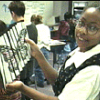
Butterfly Life Cycle Optical Illusion
Source Institutions
This activity is a fun way to show two stages in a Monarch butterfly's life cycle. Learners will create an optical illusion that can be flipped from caterpillar to butterfly.
Press Seaweed
Source Institutions
In this activity, learners will collect, dry and press seaweed over the course of four days in a similar way that artists/crafters press flowers.
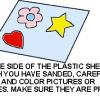
Shrinking Polymers
Source Institutions
In this activity, learners discover that some plastics will shrink when you get them hot. Learners bake polystyrene in a regular oven and discover what happens.
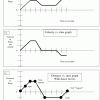
Graph Dance
Source Institutions
In this activity, learners "dance" (move back and forth at varying speeds) by reading a graph. This is a kinesthetic way to help learners interpret and understand how motion is graphed.
Moving Pictures
Source Institutions
In this optics activity, learners create flip books by drawing an image like an eye opening and closing on 24 small pages of paper.
